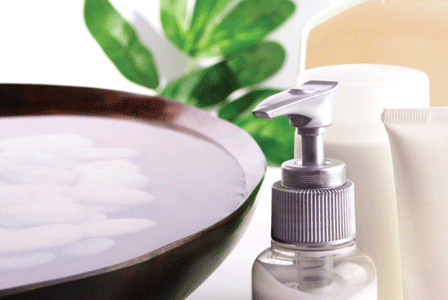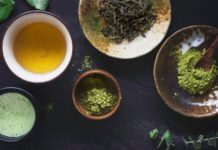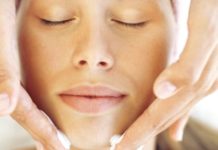
Though aging may be inevitable, how we age depends on how we treat our bodies and our skin. With proper care and nourishment, skin can remain healthy and beautiful well into the later years.
Aging is inevitable; and skin, like the rest of the body, is susceptible to the ravages of time and lifestyle. Though aging may be inevitable, how we age depends on how we treat our bodies and our skin. With proper care and nourishment, skin can remain healthy and beautiful well into the later years.
Scientists have long searched to understand how the aging process works. First proposed in 1956, the free radical theory of aging, now widely accepted, states that the aging process is due to the cumulative damage caused by free radicals—unstable molecules that damage cellular structures and DNA. Antioxidants, specialized molecules that can neutralize free radicals before they cause damage, are the body’s natural defence system.
Skin damage caused by UV radiation is called photoaging or premature aging. Photoaging shows up as fine lines, wrinkles, loss of skin tone and elasticity, and pigmentation abnormalities. By decreasing the amount of sun exposure and wearing sunscreen when appropriate, we can help prevent photoaging.
Additionally, and just as importantly, we can nourish our skin with a healthy lifestyle, a healthy diet, and topical antioxidants.
Numerous antioxidants, including vitamin C, vitamin E, lipoic acid, green tea extract, and others, have been shown in studies to be beneficial for skin and to help protect against UV damage when applied directly. Applying antioxidants topically is actually the fastest way to deliver these important nutrients to your skin.
Two powerful but lesser known antioxidants with multiple skin benefits are Astaxanthin and Pycnogenol.
Astaxanthin
Astaxanthin, a carotenoid, is produced by microalgae and gives salmon and flamingos their pink colour. One of the most powerful antioxidants discovered, research shows it has many health benefits. For skin, astaxanthin has been shown to reduce inflammation, protect skin from UV damage and, in preliminary studies, reduce wrinkles.
Pycnogenol
Pycnogenol is a standardized, patented ingredient harvested from the bark of the French maritime pine (Pinus pinaster) with powerful antioxidant, anti-inflammatory properties.
Applying Pycnogenol to skin before exposure to UV radiation can actually prevent some UV-induced damage, and applying Pycnogenol afterward can decrease the body’s inflammatory response. Additionally, Pycnogenol may help protect collagen from degradation and help improve microcirculation.
Support your skin’s health and slow skin aging by living healthily, avoiding excessive UV exposure, and nourishing your skin daily with powerful topical antioxidants.
Remember, choose antioxidant skin care formulations that contain therapeutic concentrations of antioxidants—your skin will thank you.


















